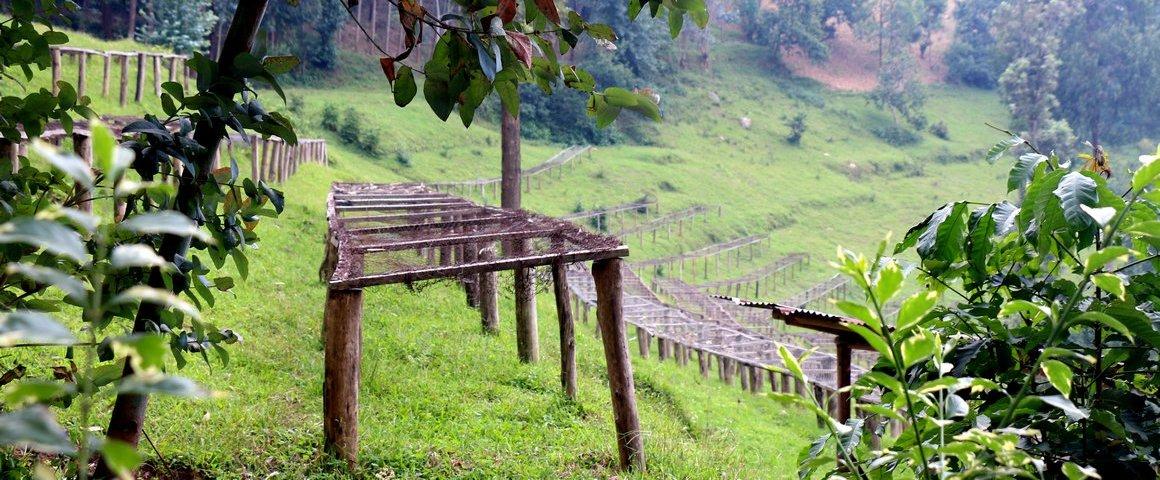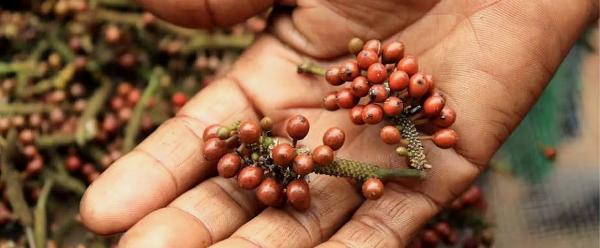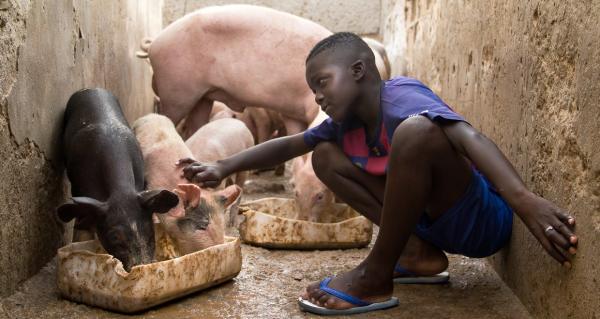Science at work 4 March 2024
- Home
- CIRAD news
- News
- GI for Rwandan coffee
Rwandan coffee could soon have its own geographical indication

Drying tables on the shores of Lake Kivu, Rwanda
Rwanda, a land of a thousand hills producing unique coffees
Coffee plays a major role in the Rwandan economy: it contributes significantly to foreign exchange revenue and is the main source of income for many families. Rwanda offers optimal growing conditions for Arabica coffee, with its rich volcanic soils, rainfall distribution and mild year-long temperatures that allow the coffee to ripen slowly, creating a distinctive taste.
However, the country’s coffee sector faces many challenges. Its value chain is unbalanced, with a well-organized export segment on the one hand and a large community of small-scale coffee producers on the other, lacking technical knowledge and development means and struggling to ensure quality production and gain access to markets. Jean-Claude Muzima, Coordinator of the activities of the Geographical Indication Project Rwanda (under Component 2 Pilot GI), on behalf of the COOPAC coffee processing and trading consortium, explains that “The GI project will allow operators in the project area to have opportunities to exchange, share experience, work together and find solutions to common problems in many areas. This was not the case in the past.”
A new project to support a GI for Rwandan coffee
Rwanda’s NAEB (National Agriculture Export Development Board) and a consortium of coffee stakeholders from the Lake Kivu region recently launched a three-year project to support the development of a geographical indication (GI) for Rwandan coffee. The project has been granted funding from the GI Support Fund, led by CIRAD and AFD.
The project focuses on two components:
- Fostering the adoption of the GI concept in Rwanda and supporting its implementation at the national level;
- Implementing a pilot GI on coffee in the western part of Rwanda, along the shores of Lake Kivu.
Activities will centre on strengthening the existing legal GI framework, facilitating capacity building for both the public and private sectors, and supporting the development of a marketing strategy for GI coffee. As Francis Twagirayezu, Acting Manager of Quality Assurance and Regulatory Division at the National Agricultural Export Development Board (NAEB), says: “The GI project will be used as a marketing tool to increase visibility and traceability of Rwanda coffee. It will enhance quality standards, compliance, and reputation of Rwanda coffee to the international market”.
The project will also cover the different steps leading to the registration of the GI and provide support for small-scale producer communities.
International efforts to revitalize the Rwandan coffee sector
The project’s key partners are the National Agriculture Export Development Board (NAEB), COOPAC (representing coffee producers), and CIRAD. The French Ambassador to Rwanda and the Rwandan Minister of State for Agriculture also attended the official launch, which was held back-to-back with the World Coffee Producers Forum (WCPF) and the Africa Fine Coffee Association Conference (AFCA). The fact that these two renowned international conferences and exhibitions on coffee were held in Rwanda is proof of the efforts being made to revitalize the Rwandan coffee value chain, further reinforcing the place of the coffee sector at the heart of the government's strategic priorities.
The third project funded by the GI Support Fund
The GI Support Fund is a six-year programme to support geographical indications for countries in Africa, the Caribbean and the Pacific. It was launched by CIRAD in 2021, with support from AFD. Its projects cover the establishment of GIs, the construction of legal frameworks, support for existing GIs and the identification of products that could benefit from GIs.
The GI Support Fund covers a range of situations, including countries where GIs do not benefit from any form of legal protection. The Rwandan coffee GI project was the third to be funded by the GI Support Fund, following madd from Casamance (Senegal) and Karoo Lamb from South Africa. More recently, the GI Support Fund supported the launch of a project on Wagashi Gassiré cheese in Benin and another on the development of a GI system in Ethiopia.


























